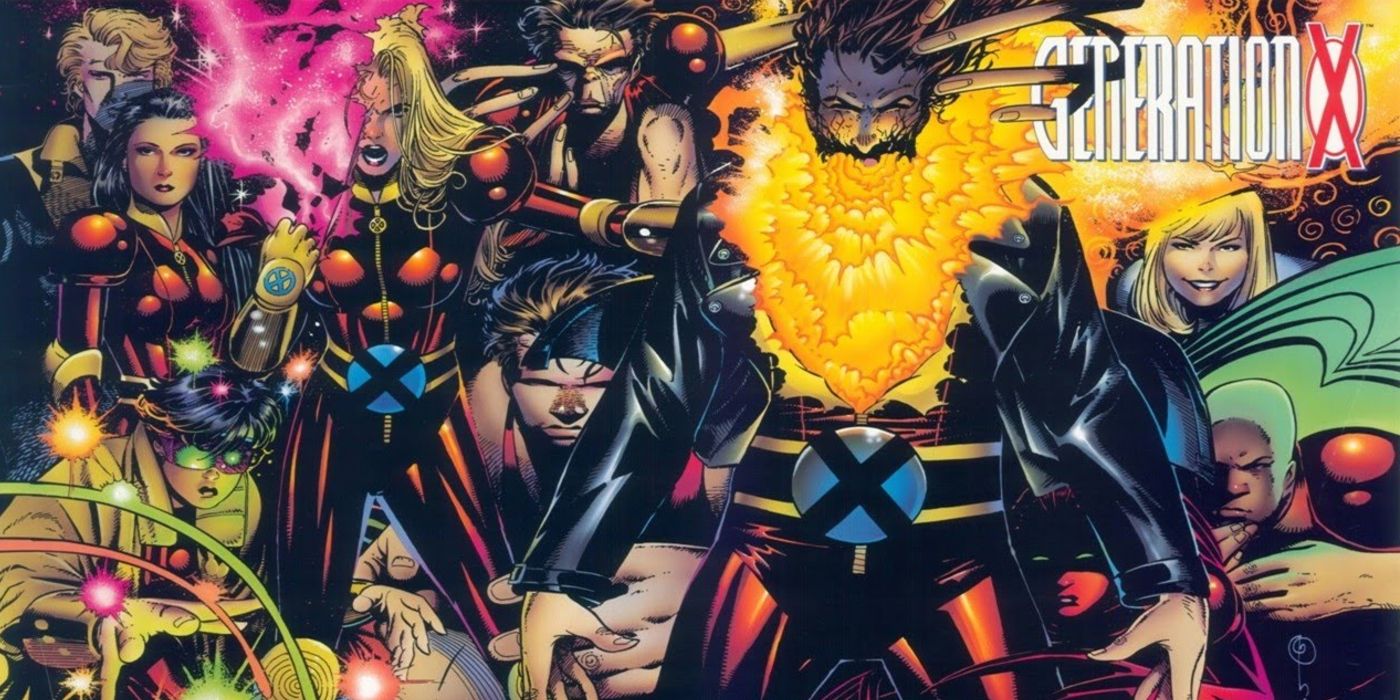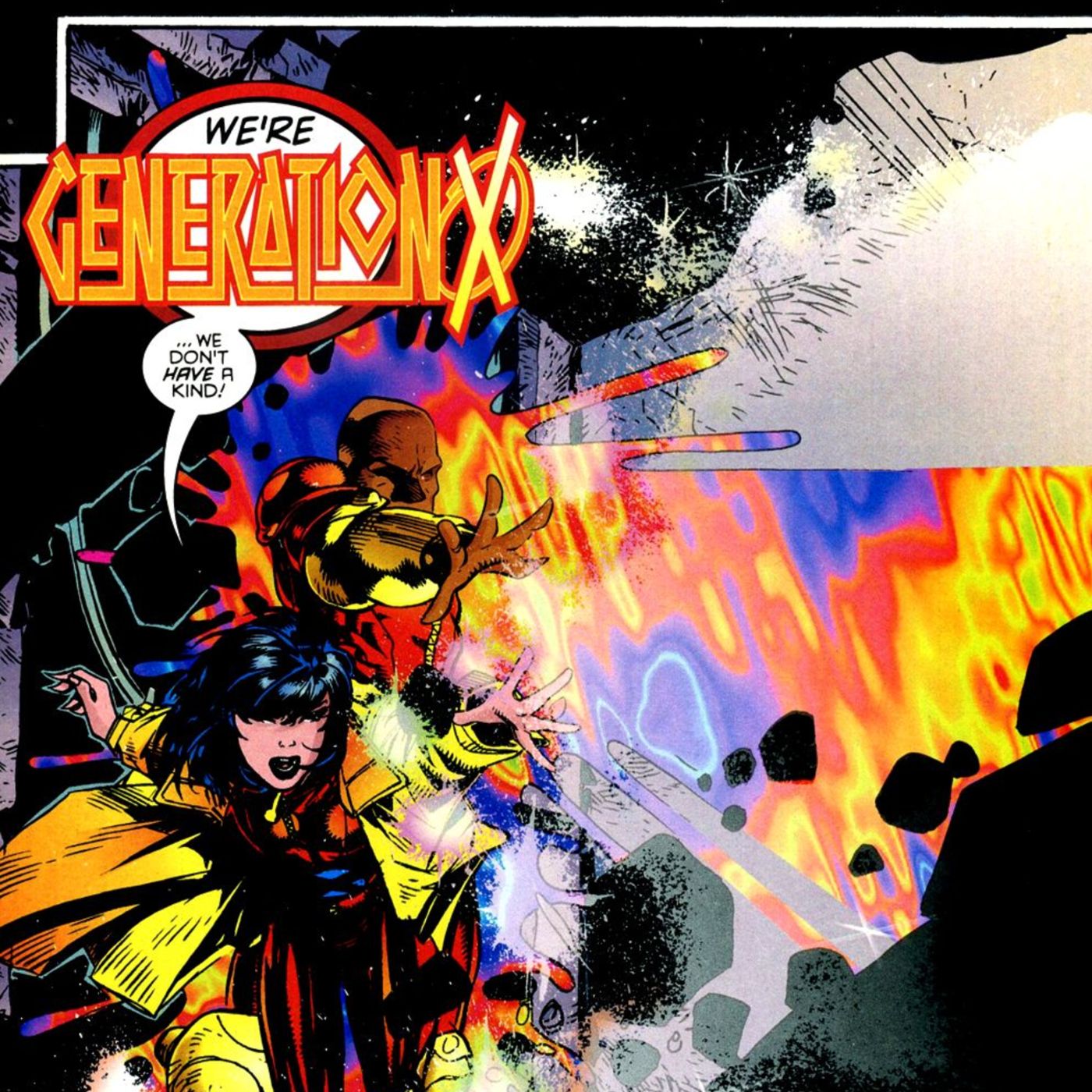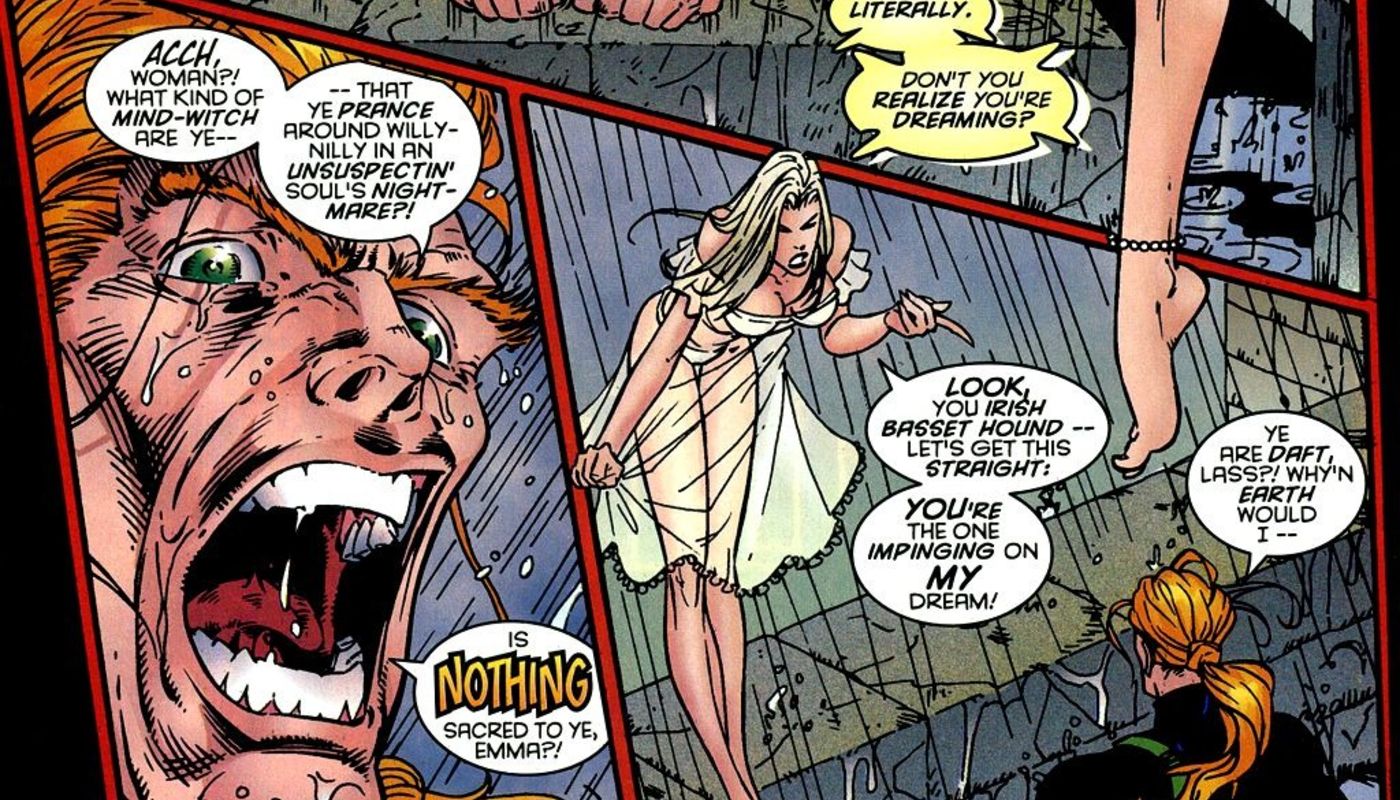The X-Men franchise has been running for almost 60 years, and their worst missed opportunity... was Generation X. Stan Lee and Jack Kirby created the uncanny X-Men all the way back in 1963, and they weren't initially much of a success. Fast-forward to the 1970s, though, and a major relaunch - featuring iconic characters such as Wolverine, Nightcrawler, and Colossus - breathed new life into a franchise everyone had thought was long since dead.
The X-Men swiftly became one of Marvel's biggest, most popular franchises. The relaunch had added an international dimension to the team, and writer Chris Claremont fleshed the new mutants out, transforming them into some of the most well-developed, three-dimensional superheroes of all time. Moving into the 1980s, Marvel began expanding the line, launching popular spinoffs such as New Mutants, Excalibur, and X-Factor. Moving into the '90s, the X-Men were bigger than ever before, breaking sales records and starring in a phenomenally popular animated series.
In 1994, Marvel launched one of their most exciting spinoffs - Generation X. This introduced a new generation of young mutants, with only a handful of established names joining the team; Banshee served as headmaster of the new school, Emma Frost as headmistress, and Jubilee as the most experienced member. Nowadays it's fashionable to mock Jubilee, but back in the '90s she was a big name, largely because she was the audience viewpoint character in the X-Men Animated Series. The team was created by skilled writer Scott Lobdell, and artist Chris Bachalo had a blast with a range of new heroes and villains. Fans and critics alike fell in love with Generation X, celebrating Bachalo's quirky, complex artwork and Lobdell's well-written teenage characters.
There was something unusually bold about Generation X. Back in the '90s, editorial policy at Marvel had tied the different X-books closely together, and the X-Office created annual events that ran through all the different books. But Generation X starred a bunch of schoolkids who weren't supposed to be active superheroes just yet; rather, they were training. The team was based at Emma Frost's Massachusetts Academy, separate from the rest of the X-Men, meaning there were only occasional cameos - including a memorable one from Bishop. While most of Generation X's new recruits had been introduced in the "Phalanx Covenant" event, none of them were yet well developed. Essentially, this was a book stripped of all the gimmicks that were so common in the '90s. It depended entirely on the quality of its creative team.
Fortunately, Lobdell was more than up to the task. He understood that the X-Men are essentially the comic book equivalent of a soap opera, and that the real focus should always lie upon the interaction between the team members. Each character was played against the others, sometimes clashing and sometimes attracting; the romance between Husk and Chamber was a highlight, an updated trope of the classic relationship between Cyclops and Jean Grey. Because these were teenagers, they were inexperienced and tended to make mistakes, as memorable demonstrated by the power-mimicking Synch when he attempted to train against his friend Skin. Meanwhile, each would-be hero had their own backstory, and every team member was ultimately forced to wrestle with ghosts from their past. The most memorable (and complex) was Monet St. Croix, who was tied to the parasitic villain Emplate.
Emma Frost had traditionally been portrayed as an X-Men villain, best known for playing a prominent role in the classic "Dark Phoenix Saga." But Lobdell focused in upon her desire to be a mentor and teacher, and he used this to redeem her. Still, Emma's ethics were hardly typical for the X-Men, and as a result she was constantly clashing with her joint-headmaster Banshee. Banshee was traditionally romantically linked to long-standing X-Men ally (now retconned mutant) Moira MacTaggert, but most readers found themselves shipping Banshee and Emma.
These kids should have become the next generation of X-Men. Unfortunately, the '90s proved to be a perilous time for the comic book industry. The comic book bubble burst, largely a result of Marvel's own business practices, and in 1996 the publisher filed for bankruptcy. Comic book sales dropped through the floor, and Marvel hurriedly restructured - and re-restructured, at a rate of knots. In 1997, Lobdell and Bachalo left Generation X. However good the replacement creative team, it could never equal Lobdell and Bachalo. The series was canceled at #75.
The tragedy of Generation X is that, as popular as the book may have been, it was largely forgotten - a victim of its own successful formula. Generation X was hardly required reading; it focused on character-work and small-scale adventures, meaning even when it tied in to major events, it tended to present side-stories that could easily be skipped. As a result, the next wave of X-Men writers failed to check it out. Some members of Generation X were forgotten, with the likes of Chamber and Husk fading into the background; Skin was killed in a horrific mutant crucifixion, purely for shock value. Only the three previously established characters went on to major roles in the X-books; Jubilee, Emma Frost, and Banshee. But the dynamic between the three was lost.
Moving into the 2000s, Grant Morrison took over the X-Men franchise. A fan asked Morrison if he had any plans to include Emma Frost in his run; Morrison had never heard of Emma, but when he looked her up he fell in love with the idea of a seductive, morally grey telepath. Unfortunately his portrayal of Emma was completely at odds with her redemption arc as told in Generation X. Morrison probably didn't know; there's no evidence he ever read Generation X. Even if he had known, he probably wouldn't have cared, since Morrison considered the X-franchise's increasing obsession with continuity to be one of its greatest flaws. And so the last legacy of Generation X was tossed aside, the next generation of X-Men were largely forgotten, and this superb series became the X-Men franchise's greatest missed opportunity.



